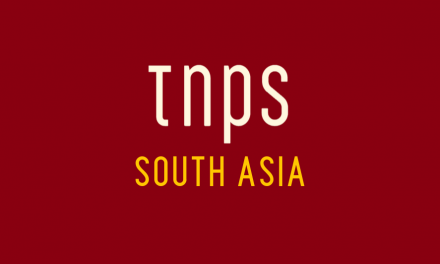It was never going to be a record-breaking year for the 27th New Delhi World Book Fair. Like the imminent Cairo International Book Fair this year, the New Delhi venue is undergoing substantive renovation. But while In Egypt they simply moved the event to another venue, in India they chose to hold the fair around the renovations.
In fairness the Cairo decision caused its own controversies –
We’ll find out next week if the relocation had any noticeable impact on the world’s largest book fair, but meanwhile evidence mounts that the decision not to relocate the New Delhi World Book Fair had unwelcome, if predictable,consequences, as a headline in the National Herald this week demonstrated:
New Delhi World Book Fair: Not so fair this time
Marred by unpreparedness; dusty, long and confusing approach and a decline in sales, the New Delhi World Book Fair left much to be desired in its 27th edition.
It gets worse.
Snaking across scores of roadside snack and beverage vendors and fashion tidbits sellers gathered at the entry gate, it is a long walk in biting cold to hall numbers 8-12 to enter the New Delhi World Book Fair. If you have a problem in your legs, God save you.
Its most disturbing aspect is the immensely dusty, rough and long walk till the pavillions, with barely any shuttle service for the old, women and kids. People, their hands loaded with books, were seen huffing and puffing to reach the main road.
The checkpoints with dirty curtains, zero information on regional language stalls, heavy barricading and closed roads, long U-turns due to heavy construction inside the Pragati Maidan, etc. have turned much of the fair into a nightmare. It has had many visitors going back in disgust. Only gate no 1 and 8 are open to the visitors. Deserted halls, less brands and confusing approach is not a mark of an international book fair.
The Herald went on to report many – not all, but many – publishers and booksellers at the event saw a drop in sales – in stark contrast to the bigger picture across India where both footfall and sales have been steadily increasing. This for example, from March 2018:
Which puts the 2019 New Delhi World Book Fair numbers in perspective. 900,000 may sound impressive, but it’s a big drop for New Delhi.
But it wasn’t all bad news.
The nine-day long New Delhi World Book Fair 2019, organised by National Book Trust, India came to a close on Sunday. The last day of the Fair saw good footfall which included every section of the society. According to the organisers the fair saw over nine lakh books visitors.
During the Fair, several programmes including discusvsions, interactions with differently-abled celebrities were organised. While visitors appreciated this year’s theme and observed that the theme sensitised people about the various issues related to the persons with special needs.
Along with various performances by children, was a play performed by the students of Punjabi Islamia School, on the importance of Girl Child Education. The children brilliantly portrayed the current situation of our society towards girl child and how it is a grave matter of concern.
That from DNA India.
With Sharjah as guest of honour there were plentiful productive exchanges between the Middle East and India. Far too many to track here, but anyone following the TNPS twitter feed (@thenewpubstd) will have seen some fine examples) as well as globally, and I’ll come back on some of these as details become clearer.
For now, we say goodbye to the New Delhi World Book Fair until 2020, when we hope the arena wil be fully renovated and what is usually one of the world’s biggest book fairs can get back on track.
Which perhaps says everything about the India book market and its prospects right now. A 900,000 turnout at a book fair is seen as a disappointment? Only in India.





